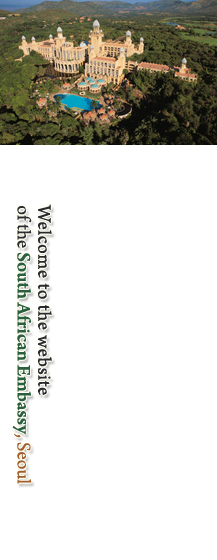- Situated at the confluence of the Sashi and Limpopo Rivers lie the great ruins at Mapungubwe - home to one of the first (and wealthiest) African kingdoms. The ruins show remains of human occupation around 850 AD (long before the emergence of Great Zimbabwe). The artefacts of Mapungubwe (including the famous gold bowl and rhinoceros dating back to 1200AD) are evidence of a flourishing trade of an advanced African Kingdom. (Photo: gold rhinoceros found at Mapungubwe)
- The Cradle of Humankind is Gauteng's most famous World Heritage site (situated less than an hour from Johannesburg). The famous Sterkfontein Caves have produced nearly half of the world's hominid fossils. Additionally, to the Northeast of Sterkfontein lies the fabulous Wonder Cave, home to the ice Madonna and an underground `cathedral' that is simply mesmerising.
- Therapsids are the true ancestors of mammals, and lived over 200 million years ago, long before the upstart dinosaurs of the Jurassic Age (which ended abruptly 65 million years ago). Most of the world's proto-mammalian fossils are found in the Karoo - along with a 280 million year old fossilized shark.
- The Cederberg Mountain range in the Western Cape is called the biggest art gallery in the world, thanks to hundreds upon hundreds of ancient San/Bushman paintings. Bushman paintings make up the earliest rock art on the planet - some are tens of thousands of years old.
- At Blombos Cave in Southern Cape, two pieces of ochre engraved with geometric patterns were found to be over 70 000 years old, and were accepted as the earliest evidence of abstract thinking by our human ancestors, predating the famous cave paintings of Lascaux in France by 35 000 years.
- The world’s first free public library service was established by Governor of the Cape, Lord Charles Somerset, in 1820, by levying a tax on the sale of wine. His library formed the basis of what is today the National Library of South Africa in Cape Town.
|














